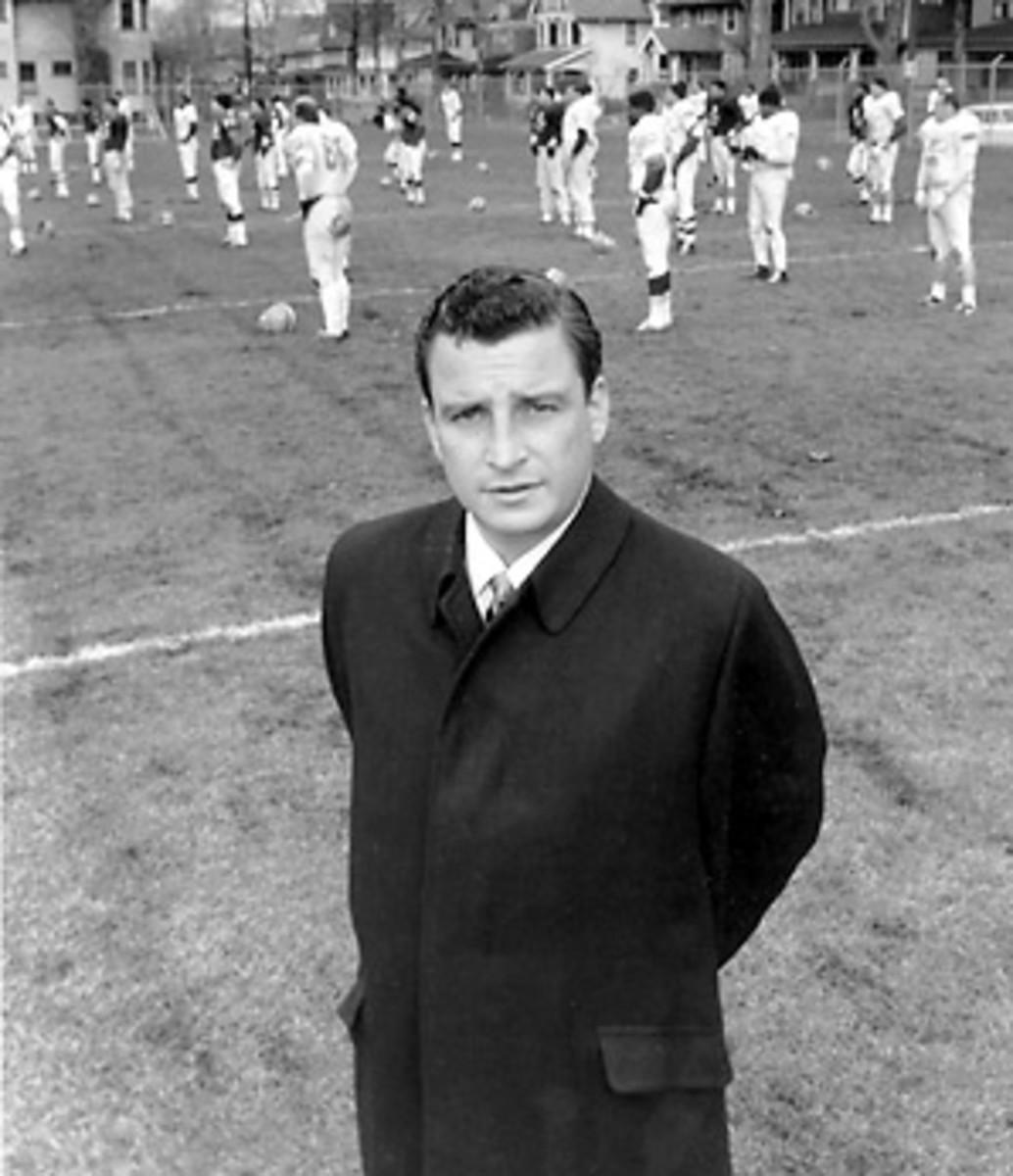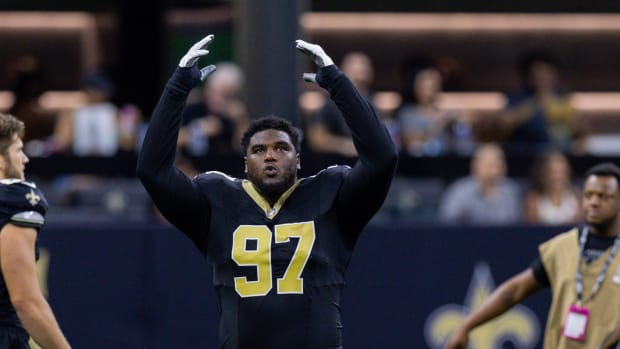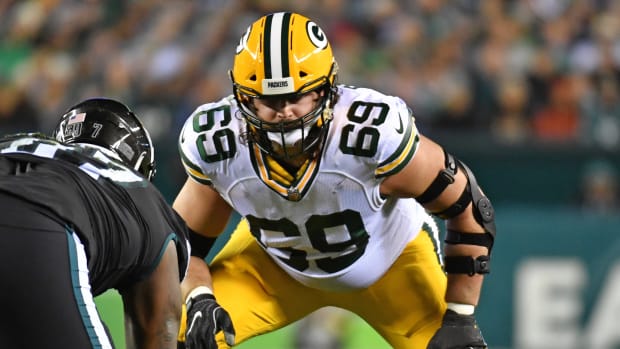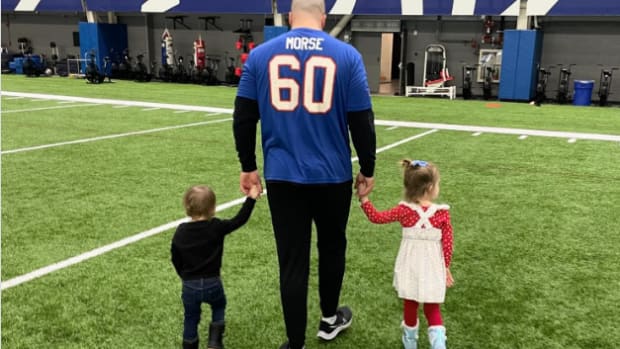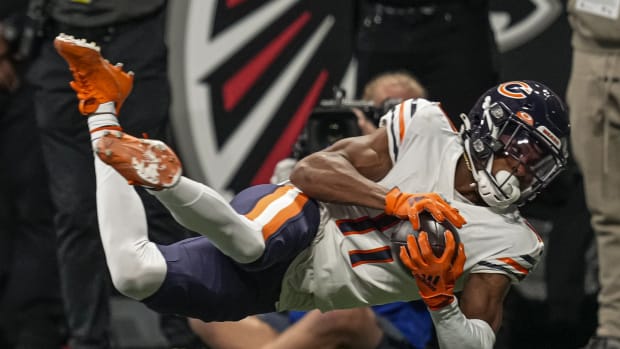Art Modell, polarizing but iconic former NFL owner, dies at 87
Depending on the prism through which one viewed Art Modell, the former NFL owner was either unforgivable or unforgettable. Reviled by a legion of fans in Northeastern Ohio, after he relocated the storied Cleveland Browns franchise to Baltimore in 1996, Modell was nonetheless mostly revered by his NFL colleagues, including several owners whose teams were notable archrivals of the Browns.
"Art Modell was a good friend to our family and he will be sadly missed," Pittsburgh Steelers chairman emeritus Dan Rooney said in a statement released by the club. "He was instrumental in helping the National Football League become what it is today and he always had the league's best interest at heart."
Said Cincinnati Bengals owner Mike Brown: "Art was one of a kind."
The Browns and Steelers are longtime, often bitter foes. The Browns and Bengals, of course, shared an intrastate rivalry. And Modell once fired Mike Brown's father.
Modell died early Thursday at the Johns Hopkins Hospital in Baltimore at 87 after a series of physical setbacks -- including a dozen hospitalizations, two heart attacks, quadruple bypass surgery and a pair of strokes -- over the last several years. His death came 11 months after that of his wife, the fiercely loyal Patricia Breslin Modell, a former television actress. Modell is survived by sons David and John.
He is also survived by a legacy that is equal parts polarizing and powerful.
During his stewardship of the Browns (1961-95) and subsequently the Baltimore Ravens (1996-2004), the franchise advanced to the postseason 18 times and won 12 division championships. The Browns won the 1964 NFL championship, before the NFL-AFL merger and before the Super Bowl Era. Led by a dominant defense, the Ravens won Super Bowl XXXV in 2000.
"If you were there, you'll never forget how happy [Modell] was, and that definitely meant something to the players," recalled 13-time Pro Bowl linebacker Ray Lewis, remembering on Thursday the Super Bowl victory long coveted by Modell and the owner's emotional reaction to it. "We wanted to win it for us, sure, but we wanted to win it for Art, too. He was a great man."
Until recent years, Modell maintained a private box at the stadium and an office at the Ravens' headquarters, and was a frequent visitor at training camp. He was very close to the Browns' and Ravens' players and coaches.
One of Modell's favorite players, Lewis visited with the former owner only a day before his death. "He always," Lewis said, "kept his character. Until the end."
Modell was also a man, though, whose track record was tinged with some failures and certainly considerable controversy. The Browns, whose failure to win a Super Bowl for him, advanced to the AFC title game three times, in 1986, '87 and '89, under his ownership. But the losses in the first two games in particular were memorable and painful, once termed by Modell as "gut-breaking," an obvious combination of "gut wrenching" and "heartbreaking."
Cleveland lost the 1986 championship game in overtime to Denver, after Broncos quarterback John Elway authored The Drive, a 98-yard march in the closing minutes to tie the game and send it to overtime. A year later, the Browns fell one victory shy of a Super Bowl XXII spot when running back Earnest Byner lost the football going into the end zone for a potential winning score in a game memorialized for The Fumble.
But it was The Move, his controversial 1995 decision to relocate the iconic franchise to Baltimore for the following year, and which left Cleveland without a team for three seasons, that is perhaps Modell's most significant marker to a generation of NFL fans. As part of the relocation agreement, Modell left behind in Cleveland the team's name, its history and it records. He also left behind openly hostile and disillusioned fans who felt abandoned and betrayed and who never forgave him.
Modell said that, in the move to Baltimore, he "left my heart and part of my soul" in Cleveland. Loyal and devoted Browns fans countered that Modell had ripped out their hearts, and that sentiment never diminished for some.
On a 1995 Sports Illustrated cover (right), with the title "Battle for the Browns," there was a caricature of Modell punching a Browns fan. The relocation, however, made Modell a figurative punching bag, for some the often lampooned embodiment of the greedy and mercenary sports owner.
The decision left Modell a pariah in Cleveland -- NBA star LeBron James remarked after announcing his move from Cleveland to Miami two years ago that he "probably now [rivaled]" Modell as one of the most despised figures in the city's sports history -- and likely tarnished his legacy to many.
But not to all who knew Modell.
"As an owner, he desperately wanted to win, and he desperately loved his team," said Ravens general manager Ozzie Newsome, a Hall of Fame tight end as a player with the Browns. "But he was also a 'league first' guy and so much of what the NFL is today is because of him. He was such an influential figure."
In a Thursday morning statement, NFL Commissioner Roger Goodell characterized Modell as a "visionary."
Although Modell's role in negotiating the NFL's first national television contract is at times overstated, it is hardly hyperbole to cite his knowledge of the still burgeoning TV industry as critical to the league's growth spurt. He helped to create the Monday Night Football franchise, was critical to the labor negotiations for the first collective bargaining agreement with players in 1968, was innovative in marketing and promoting the game, as with preseason doubleheaders, and often led the way in diversity hiring practices.
Perhaps most critical, Modell was an avowed advocate of revenue sharing, the concept that all teams, even the smaller market ones, should share equally in the NFL's windfall. That is a principle that has helped to foster the competitive balance that remains a keystone of the league.
But Modell also shocked and angered Browns fans by firing the legendary Paul Brown in 1963, despite the Hall of Fame coach and innovator having won three NFL titles. "It was my survival or his survival," Modell explained after the dismissal, in what would be the first of several unpopular moves.
There are some who contend that Modell precipitated the premature retirement of Hall of Fame running back Jim Brown, although the latter has frequently sidestepped the issue and suggested that he "loved" the former owner. Modell often warred over contracts with players, forcing some high profile holdouts, and traded away star wide receiver Paul Warfield and standout quarterback Bernie Kosar, among the franchise's all-time most popular performers.
While the move to Baltimore left Modell cash-strapped, and subsequently prompted him to sell the franchise to Steve Bisciotti, critics charged that Modell greatly benefitted financially while in Cleveland and that he fostered a lifestyle that was excessively lavish and perhaps outlived his means.
What was rarely eclipsed was Modell's sense of humor, general presence, and fondness by the media. "He was a great storyteller, loved that role, and people loved him for it and gravitated to him because of it," said former Cleveland general manager Ernie Accorsi.
Five or six years ago, enfeebled by his many physical setbacks and relegated to a wheelchair, his speech halting and slurred as a result of a stroke, Modell was ferried into the press box at M&T Bank Stadium to meet with some old media friends. For nearly 30 minutes, in the rear of the press box, Modell, still quick-witted, regaled the assembled media with colorful stories from the past and about the game. He joked that he "might outlive" some of the more portly media members. His style of humor was markedly old-school, with one-liners borrowed from show business cronies such as Milton Berle, and was frequently borderline off-color, but it never seemed to get old with his audiences.
"Any conversation with Art," Goodell said in his statement, "included laughs."
What Modell could not outdistance or laugh off was the taint that the 1996 move to Baltimore imposed. The move probably has cost Modell previous chances at induction into the Professional Football Hall of Fame. He was a finalist in 2001 and a semifinalist on seven other occasions, and his candidacy has been hotly debated by the selectors. There have been passionate advocates on both sides of the argument. Modell is on the long list of preliminary candidates distributed last week to selectors, and it will be interesting to see what effects, if any, his passing has on the sentiments of the 44-person panel of selectors.
In 2002, former New York Giants owner Wellington Mara, himself a Hall of Fame member and now deceased, said: "I believe Art belongs in the Hall of Fame. I don't think I know a person who has done more for the league than Modell, especially through television."
Modell a few years ago noted that any desire to be enshrined in Canton was largely to satisfy his family. And no matter the criticisms, no one could deny that Modell was not a devoted family man.
"It's probably the one thing he loved more than football," Newsome said.
Born in Brooklyn on June 23, 1925, Modell forged a successful career in promotions, advertising and television production before purchasing the Browns with some partners in 1961. The purchase price was $4 million and Modell fronted just $250,000 of that, borrowing the rest. He once joked that he had "a closetful of toasters and irons" from having borrowed so much from banks. His detractors, especially after the move to Baltimore, cited the penchant -- using other people's money for his own devices, they suggested -- for his eventual financial demise.
Those criticisms aside, and despite the dichotomous component of his legacy, Modell was still regarded by his peers as one of the most influential movers and shakers in the NFL for much of his four-decade tenure. There is an oft-used phrase in the annual Hall of Fame discussions -- that one "cannot write the history of the league without including" certain candidates -- that might be appropriate to Modell.
Good and bad, it would be difficult to imagine the NFL as it is without his role.
"Football became my livelihood," Modell once acknowledged. "And my life."
































